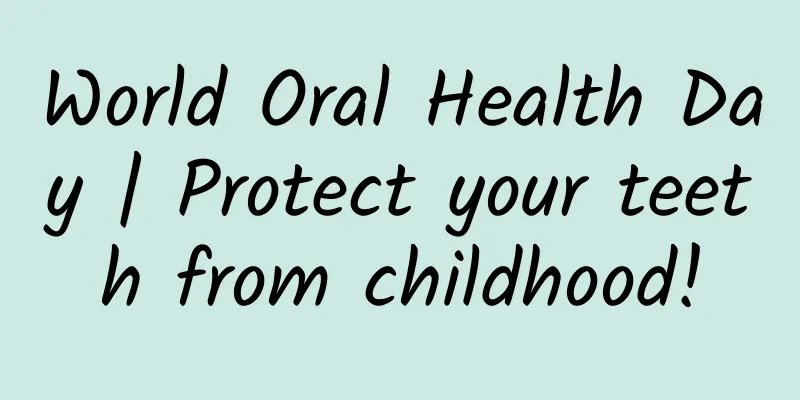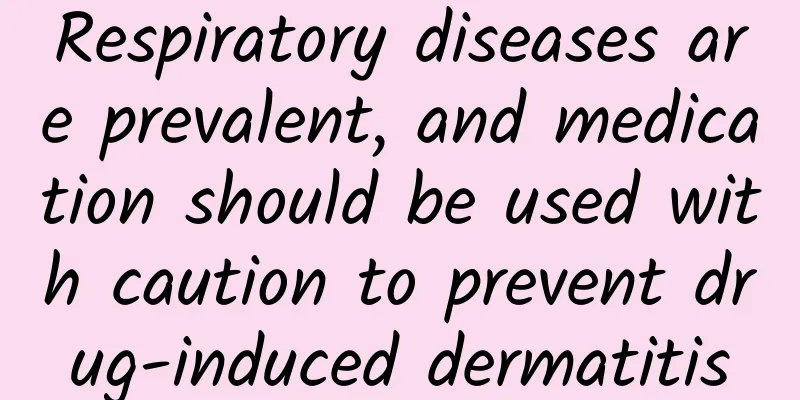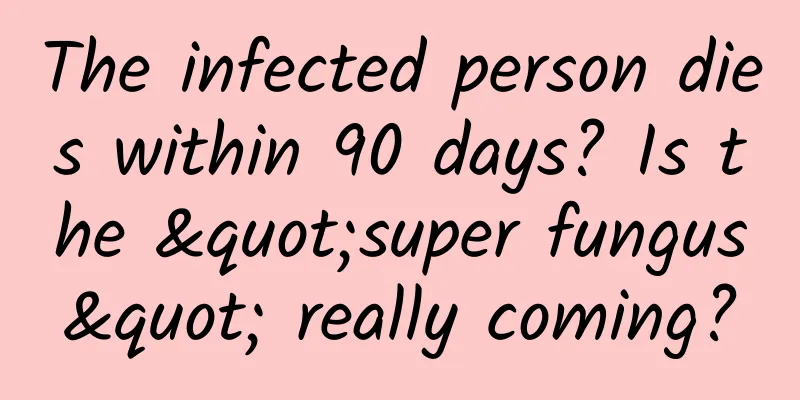World Oral Health Day | Protect your teeth from childhood!

|
Dental caries, also known as tooth decay or tooth decay, is caused by bacteria corroding teeth under the action of multiple factors, leading to chronic and progressive destruction of the hard tissues of the teeth. At first, only black spots and black lines appear on the surface of the teeth. If not treated in time, the lesions will continue to develop and form cavities, and even the teeth will be lost. People who go to the dentistry department often sigh: "Oh, I really regret not protecting my teeth when I was a child!" Parents blame themselves when they find their children have tooth decay. In fact, tooth decay is very common in infants and young children. The results of the fourth national oral health survey show that the caries rate of 5-year-old children in my country is as high as 70%! This is because infants and young children have weak tooth enamel and poor ability to resist bacterial infection. In addition, they like to eat sweets, sleep with pacifiers, etc., and have not yet developed good oral hygiene habits. Protect your teeth from an early age! Fortunately, there is a very effective way to prevent tooth decay - fluoride application. However, many parents still have questions about it: Is fluoride application safe? When should I take my child to apply it? Do all children need it? Let's find out today. Fluoride application to prevent tooth decay is really effective! Fluoride is an essential element for the normal development of teeth and bones, and its compounds are mainly used in stomatology. Fluoride application is to apply fluoride to all surfaces of teeth. Fluoride will solidify quickly after coming into contact with teeth, which is equivalent to covering the teeth with a layer of "protective film". This film can significantly improve the acid resistance of the enamel surface, and the strength of the acid resistance directly determines the incidence of caries. Many countries have proven that fluoride coating is one of the scientific means of preventing tooth decay. Many cities in my country are also actively promoting it, such as organizing fluoride coating in kindergartens. From the time your baby starts to grow teeth, you can arrange for fluoride application 1 to 2 times a year, at least until the child is 6 years old. Fluoride is most effective when applied before caries develop. If small black spots appear on your child's teeth but no cavities have formed, you can also apply fluoride after cleaning the teeth to prevent caries from getting worse. The fluoride used for fluoride application is mostly fruit-flavored, which is easy for children to accept; the whole process only takes a few minutes to complete, does not cause pain, and children can cooperate; avoid eating or brushing teeth within 1 to 2 hours after application to prevent the fluoride from falling off. It should be noted that an appropriate amount of fluoride can prevent tooth decay, but an excessive amount can also damage teeth and cause "dental fluorosis". It is important to master the dosage, and fluoride is irritating to the mucous membrane. Therefore, fluoride application needs to be performed by a professional dentist. It is not recommended that parents buy related products and apply them to their children at home. Can fluoride toothpaste replace fluoride application? Fluoride toothpaste also has anti-caries effects, so some parents may ask: Can using fluoride toothpaste for children replace fluoride application? The answer is no. First of all, the fluoride concentration of the two is different. The fluoride concentration of fluoride coating is hundreds of times that of toothpaste, and the anti-caries effect is more significant. Secondly, the anti-caries efficiency is different. Fluoride paint is a slow-release fluoride. Once applied, the effect can last for half a year. In other words, applying fluoride twice a year is enough. Furthermore, fluoride coating is applied to all surfaces of the teeth, which can provide more comprehensive protection for the teeth. Is it necessary to apply fluoride in high fluoride areas? my country's high-fluoride drinking water areas mainly include 12 provinces: Tianjin, Hebei, Henan, Shandong, Shanxi, Inner Mongolia, Shaanxi, Ningxia, Xinjiang, Jiangsu, Anhui and Jilin. Some people believe that the fluoride intake of children in these areas is enough to protect their teeth, so there is no need to apply fluoride, and it may even increase the risk of excessive fluoride intake. To be on the safe side, it is recommended that children in these areas consult a doctor before applying fluoride, and the doctor will make a comprehensive judgment based on the local situation and the child's dental condition. Fluoride coating + fissure sealing, double tooth protection is more powerful In addition to fluoride application, there is another method recommended by the World Health Organization to prevent tooth decay - pit and fissure sealing. As the name suggests, the process of filling the grooves on the surface of the teeth with pit and fissure sealants can prevent dirt and grime from gathering, thereby protecting the tooth enamel from erosion by bacteria and their metabolites and playing a role in preventing caries. At present, many primary schools in my country have launched free pit and fissure sealing projects for the first permanent molars (six-year molars). This is because children have different susceptibility to dental caries. According to reports, the incidence of dental caries on the occlusal surface of the first permanent molars is the highest, and usually occurs within a short period of time after eruption. In fact, as long as there are deep pits and fissures on the tooth surface and there is a risk of caries, both deciduous teeth and permanent teeth can be sealed. Deciduous teeth are sealed at the age of 3 to 4, and permanent teeth are sealed at the age of 6 to 12. Generally, sealing once is sufficient, and it is best to do it before caries occurs. Pit and fissure sealing is also a painless operation, and the materials used are non-toxic and harmless. Families who have the means are advised to arrange both fluoride application and pit and fissure sealants for their children. This powerful combination will have a more significant effect in preventing caries. Some parents believe that since baby teeth will be replaced sooner or later, it is not cost-effective to seal the teeth. This is actually a misunderstanding. Baby tooth decay affects not only the baby teeth themselves, but also the eruption of permanent teeth, causing a variety of oral problems, and even hindering children's eating, which is not conducive to nutrient absorption and physical development. How should infants and young children clean their teeth? After my child has had fluoride applied and pit and fissure sealing done, can I just relax about brushing his teeth? Of course not! Brushing teeth is the most basic method of oral health care, and no other method can replace it. The following are some common confusions about teeth cleaning for infants and young children: ●Do babies who haven’t grown teeth also need to brush their teeth? When brushing your teeth, you should naturally wait until the teeth come out before brushing them. If you think so, you are wrong! In fact, oral cleaning should be put on the agenda after the baby is born. Before the teeth grow, parents can wipe the baby's gums with clean gauze dipped in warm water 1 to 2 times a day. After the teeth grow, start brushing teeth in the true sense. Use a baby toothbrush or a finger toothbrush and try to brush all sides of the teeth. It is best not to let your baby hold a bottle for a long time, try to reduce the number of night feedings, and feed him some warm water after feeding, which can also help prevent tooth decay. ●Does the baby need to use toothpaste when brushing his teeth? Generally, children can use toothpaste after the age of 1, preferably those without fluoride. After the age of 3, fluoride toothpaste can be used. This is because children under the age of 3 have an incomplete swallowing function and poor control. They may swallow toothpaste by mistake, especially toothpaste with a good taste, which can lead to excessive fluoride intake. Generally, children can brush their teeth more cleanly when they are six or seven years old. Before that, parents should provide guidance and help. ●Do children need to use dental floss? Dental floss is a great tool for cleaning the gaps between teeth. People who have used it say they can’t live without it anymore. After cleaning your teeth with a toothbrush, they look very clean to the naked eye, but if you use dental floss to clean them again, you may find some previously invisible dirt hidden deep in the gaps between your teeth. Therefore, not only adults should use dental floss, but children should also develop a good habit of using dental floss. After your child starts eating complementary foods, you can use children's dental floss to help them clean their teeth. When your child is older, you can teach him or her to use dental floss on his or her own. If your child resists or doesn't like to use it at first, there is a kind of children's dental floss with a fruity flavor that you can try. Content support: Ren Dong (pen name), Southern Medical University |
>>: Rice sauce is a must-have for people who love eating. It’s so delicious as a snack for children!
Recommend
What to do if you take medicine during early pregnancy
We all know that being able to conceive a healthy...
How long can you live with cervical precancerous lesions?
In fact, cervical cancer is a disease that also r...
Postpartum abdominal pain
Everyone should have experienced the feeling of s...
Headache before the period
Menstruation is the biggest dislike for most wome...
This type of people is most likely to develop diabetes within the next 10 years. Click to see if you are one of them.
Author: Li Guangwei, Chief Physician, Fuwai Hospi...
Sea salt, iodized salt, low sodium salt... How to choose between different types of salt? Many people eat the wrong salt
In the past two days, "buying salt" and...
Stool color after bile stasis in pregnant women
When a woman is pregnant, it is more likely to de...
What causes yellow leucorrhea in early pregnancy?
Leucorrhea is a secretion from the female body. I...
First aid guide for snake bites: How to save lives at critical moments?
Author: Lv Chuanzhu, Professor and Chief Physicia...
Office ladies must follow these suggestions
As we all know, if we work or play games in front...
It’s hard not to lose weight if you eat like this!
Losing weight is a lifelong career for women. Onl...
I feel tired and weak during menstruation
When menstruation comes, because the human body i...
What is the nutritional value of mustard greens? What should not be eaten with mustard greens?
Mustard contains a large amount of ascorbic acid ...
Menstruation 12 days early
First of all, if menstruation comes 12 days early...
What are the symptoms of nasal polyps? Will it make children ugly and affect their studies?
Nasal polyps are a common nasal disease, often oc...



![[Fat Bear Science] @Women! Are women with large breasts more likely to get breast cancer? Can men get breast cancer? You must know these 7 questions](/upload/images/67f1ebee42e80.webp)





